Learning Languages for Travel is a great way of getting in touch with locals. Here’s how to learn some basic vocabulary for your trips by using babbel.com
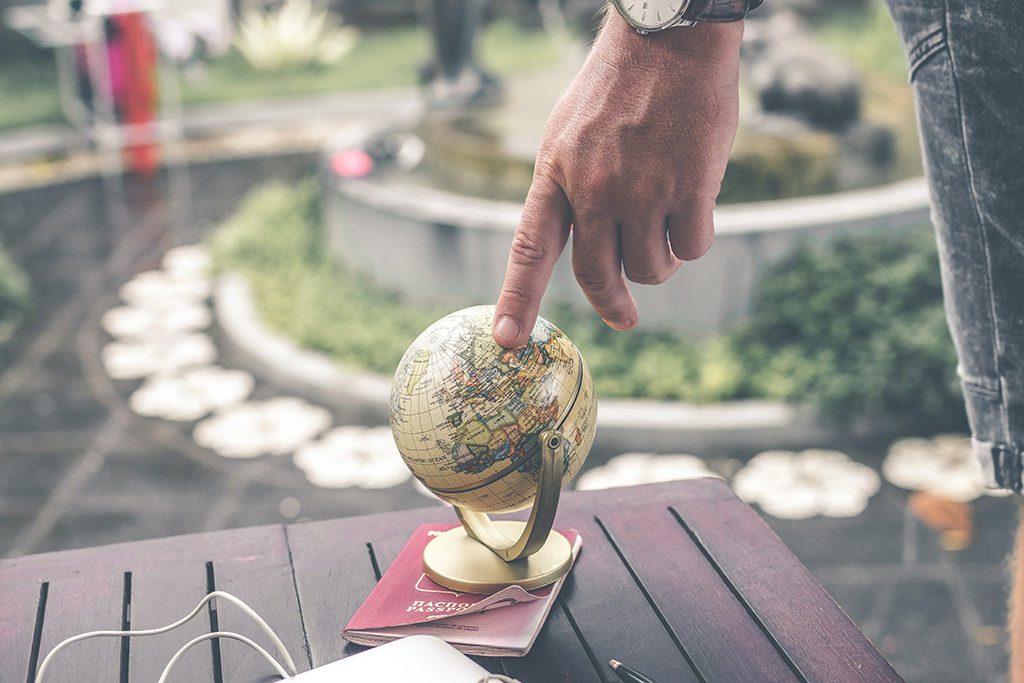
Considering that at least in Germany babbel.com is advertising a lot, to my surprise, I don’t know anybody actually learning with this online tool. Anybody but me that is. And I will tell you why I love using it.
I’m just coming back from a very hard language course in Rio de Janeiro that I took on the occasion of my education leave. Hence, I’d like to encourage you to get a basic knowledge of the language spoken in the country you are travelling. Even it’s it just a couple of basic words and expressions.
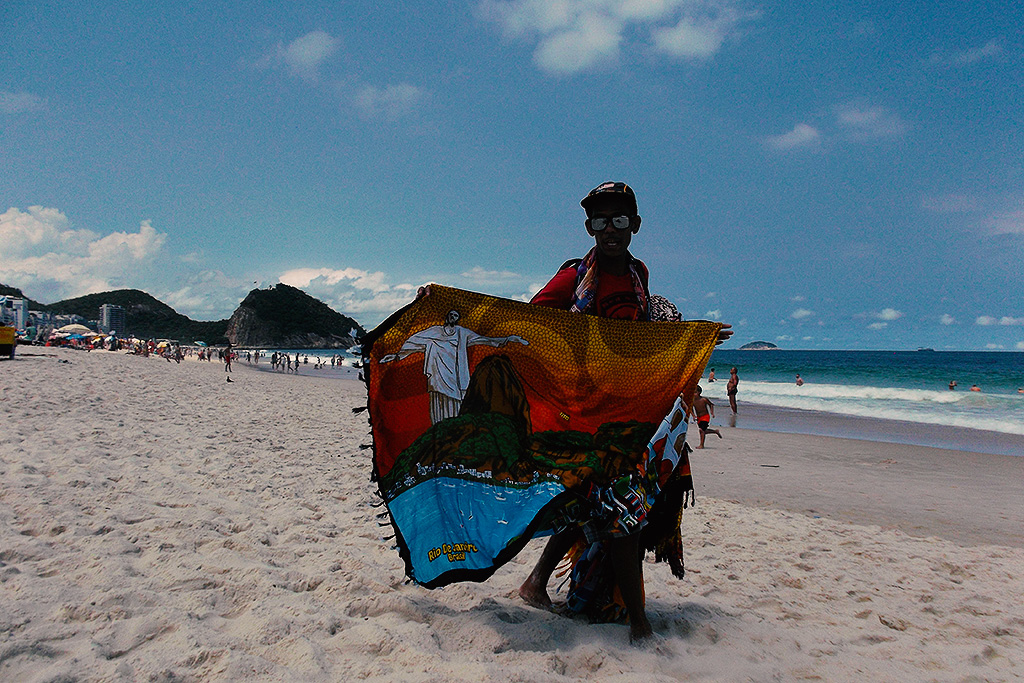
Coming back from a country where not too many people speak some basic English, I’d like to sort of urge you to get a basic knowledge of…you got the drill.
Practicing is not Learning
No kidding, nobody will ever learn a language using babbel. Learn in the sense of I speak it, I read it, I understand native speakers.
Depending on which language you are dealing with on babbel, you hardly learn any grammar. You get to listen to very few whole sentences. You hardly ever engage in any form of conversation. Practically every key to having command of a language is missing.
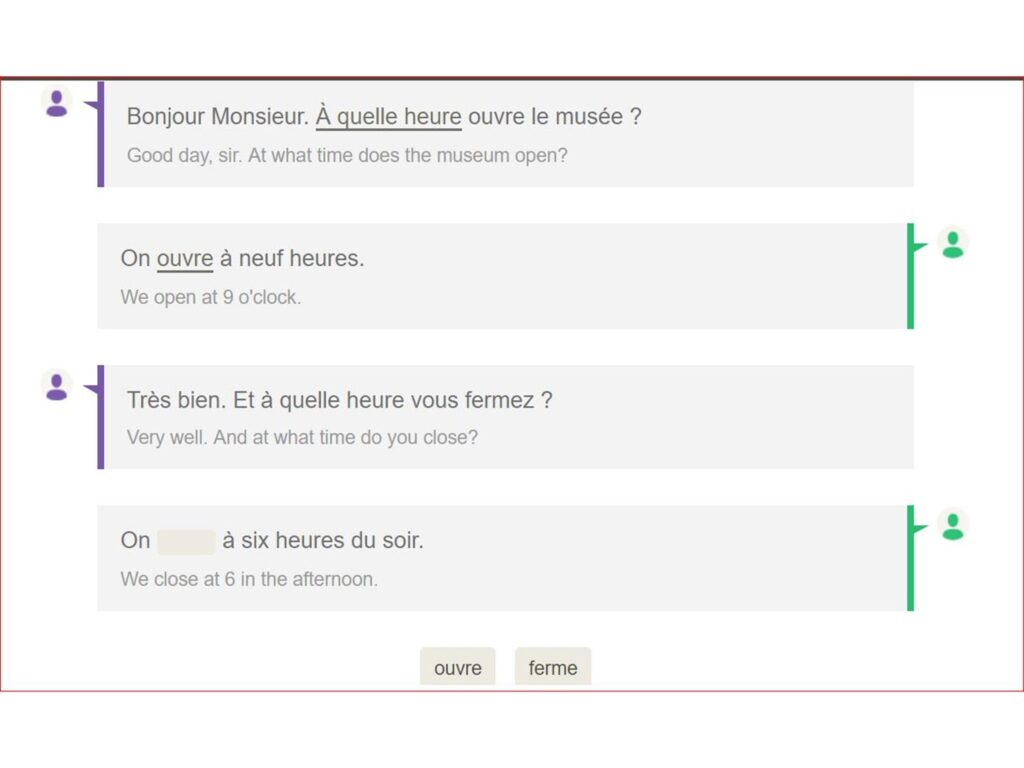
When I told my Portuguese teacher in Rio de Janeiro that I was practicing my basic knowledge of the language on babbel, she only rolled her eyes. Well, she is an excellent teacher with very high standards.
But – and this but does not only have a capital B because it’s at the beginning of this sentence, this but is a but with a capital B because there’s the other side of babbel: It’s a great tool for you savvy traveller who wants to say thank you and please and good morning and pleased to meet you and bread and water like the local people do! And for this basic knowledge of a language, babbel is just great because it has exactly what you need.
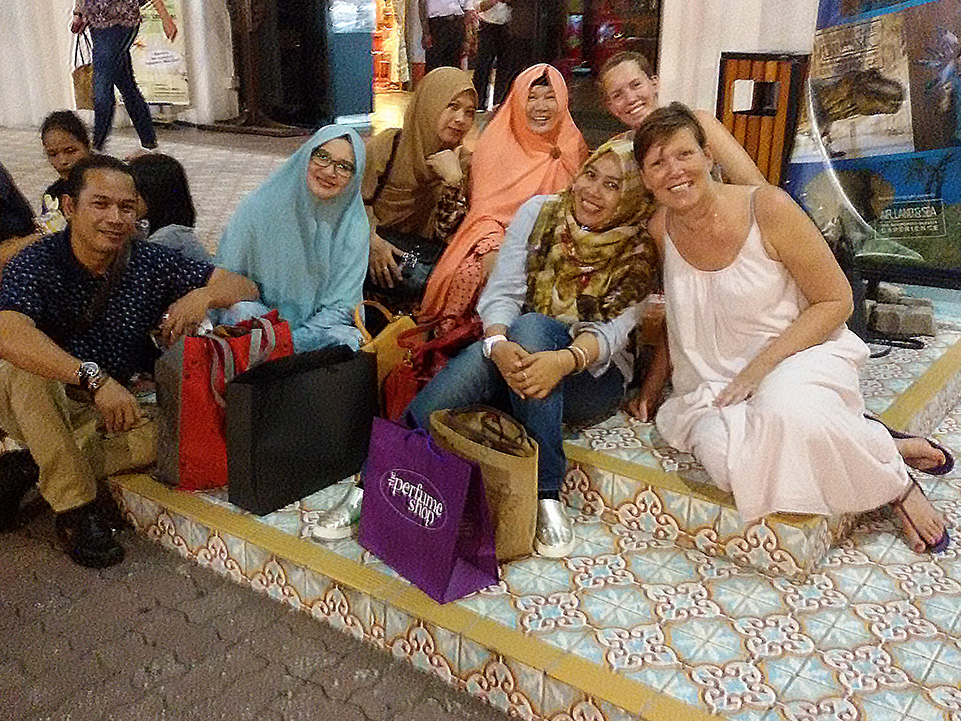
Start Small’n’Simple
It starts with a really basic vocabulary such as good morning, good night, thanks etc. You are practicing these with pictures on little tiles; makes you feel like a toddler learning to speak.
But since the system is based on your brain relating to these pictures and thus visualizing the word and its meaning as well as on lots of repetitions, it actually works and makes remembering really easy.
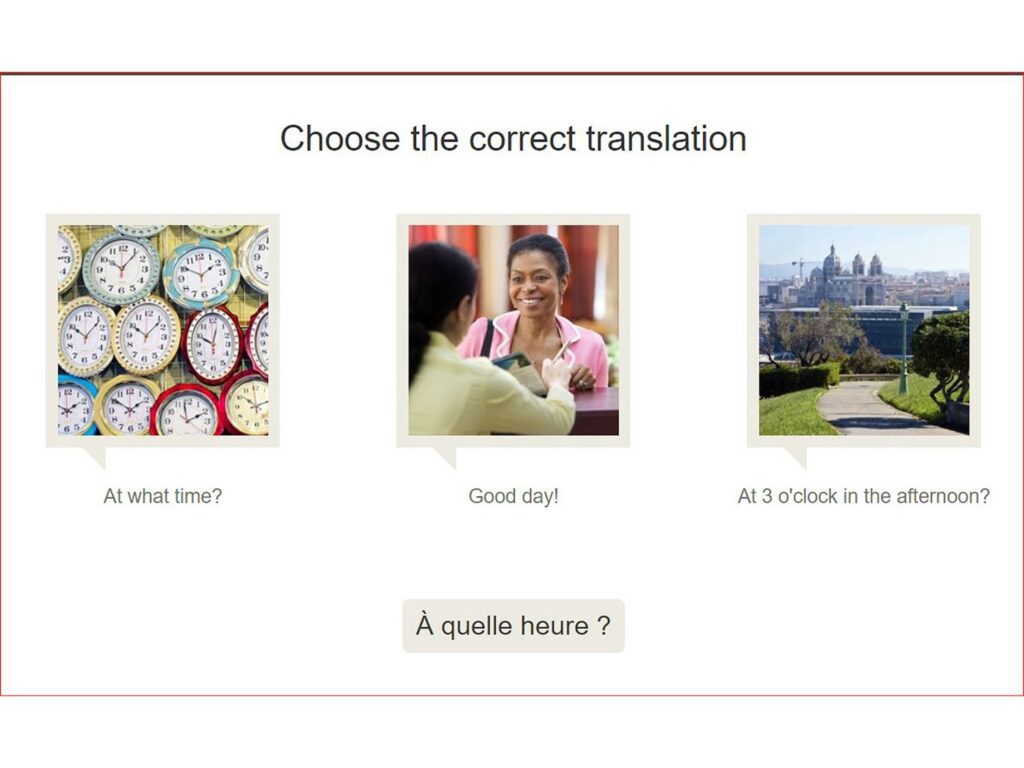
But exactly this effect is at the same time an obstacle: Try to remember the stupid word without the picture – you’ll feel like having a hole in your brain; you know exactly what it is…but what is it again?
Anyway, I will not discourage you, when you learn only a handful of words and expressions, it works really well.
How It Works
So before you try it out, here are some information: Surprise – you need to set up an account. There is a free trial of the first lesson and this might even be all you need. But watch it: If you happen to have a thing for languages, you get hooked pretty fast. For a trip to Bali, I started with the free Indonesian lesson. As a matter of fact, I got immediately addicted and wanted more and more.
You can choose how long you want to learn. The monthly costs are between 4,95 € if you subscribe for a year and 9,95 € for only one month. With the paid version you have access to all kinds of topics. Some are really useful being designed for travel and meeting the people.
I practiced Indonesian for maybe about one month and learned really a lot.
But actually everything beyond the standard pleasantries was pretty useless and, as I explained above, out of context. Also, without the corresponding pictures, you remember only a part of what you have practiced.
Remember: You have practiced, you didn’t learn.
However, the useful pleasantries are absolutely worth it. People in Bali, in Malaysia, and Singapore were amazed that I was able to say a couple of words.
bonjour – buongiorno – dzień dobry
Babbel offers 14 languages: English, French, Spanish, German, Italian, Portuguese, Dutch, Danish, Swedish, Norwegian, Polish, Russian, Turkish, and Indonesian.
You can choose whether you want to repeat the words over a microphone or only klick on tiles or type the words.
Besides Portuguese, I’ve practiced Indonesian and Turkish, and the choice was surprisingly different. Turkish offers a much wider range of lessons including much more grammar and even short dialogues. Indonesian is basically a long list of vocabulary and a couple of sentences.
Unfortunately, they abolished my favorite feature where you were able to add your own vocabulary to your personal database. I hope they will re-install it since it was so helpful and fun.
You Don’t Need to Be an A-Student
But anyway, even as it is now, it’s a great and easy tool. If on your next trip you want to impress and get right into people’s hearts, give it a try, it’s so much fun. Try it out right now!

And remember: The best way to actually learn (!) a language is to….travel!
Therefore, I learned Italian in Milan, Rome, and Florence, Turkish in Izmir, Portuguese in Rio de Janeiro, and Arabic in the capital of Morocco Rabat.
So, if you have any questions regarding travellers’ communication, I’d be very happy to hear from you.
How about you, do you learn some local vocabulary when travelling?
How do you do it? What are your sources?
Pinnable Pictures
If you choose to pin this post, please use one of these pictures:
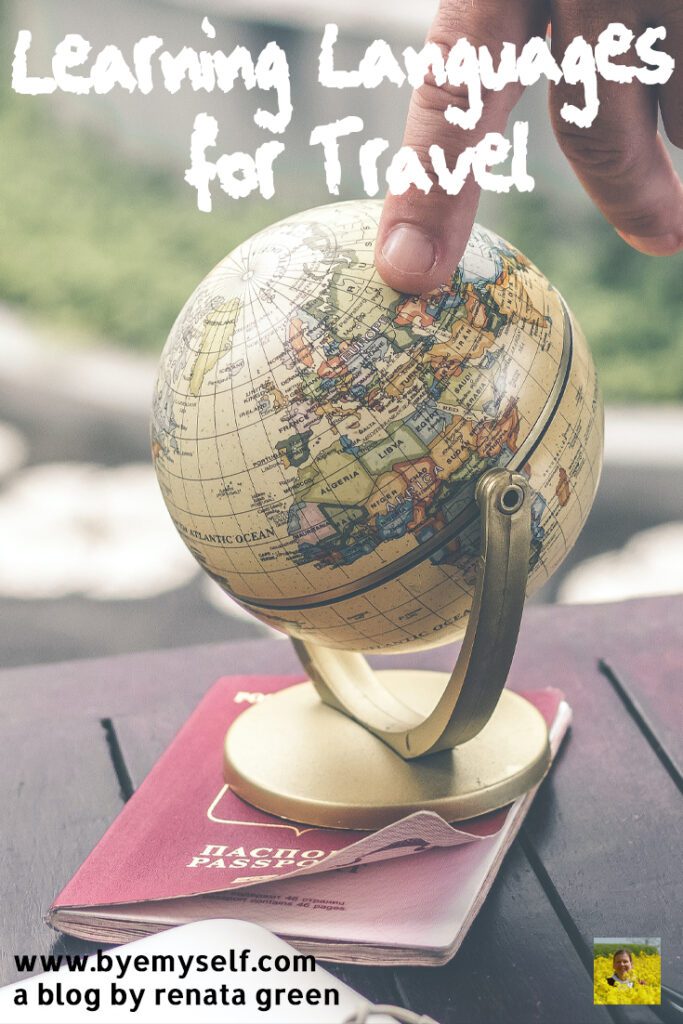
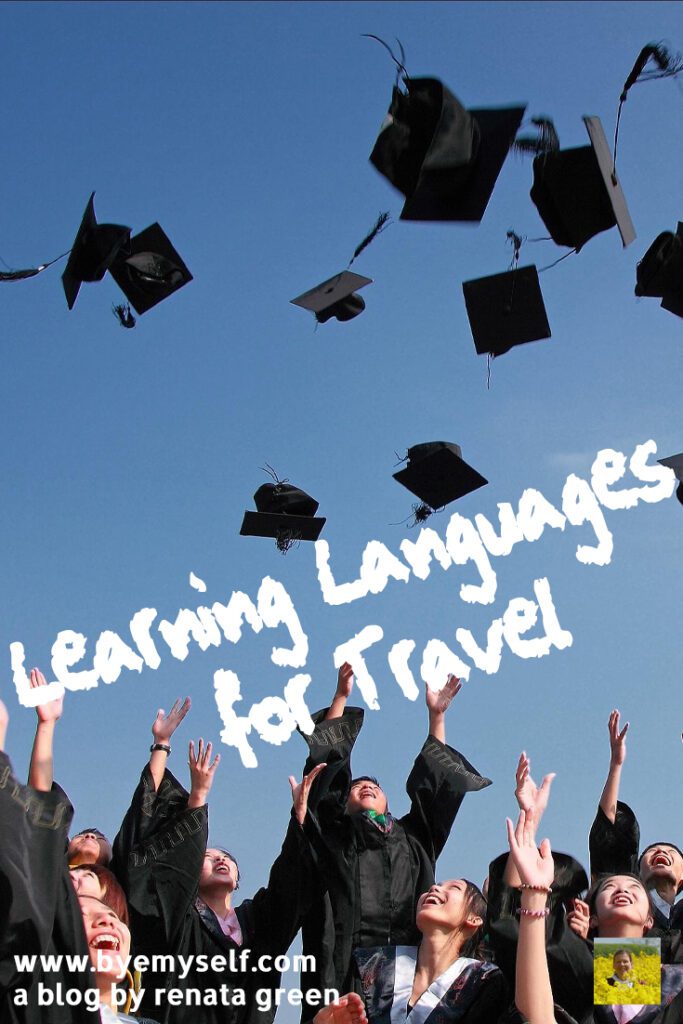
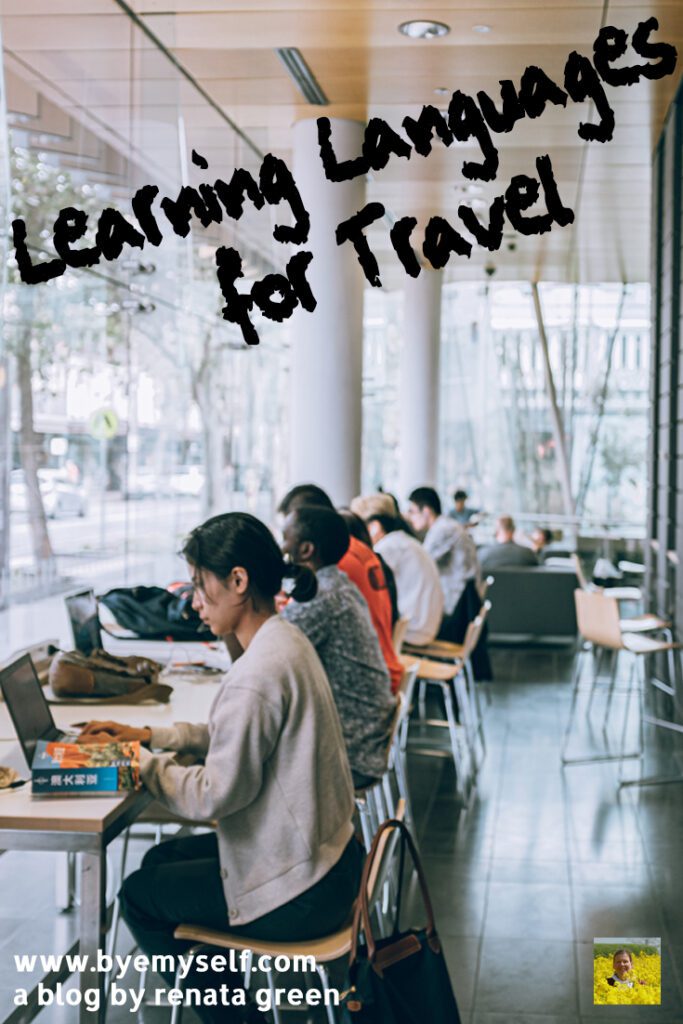
Note: I’m completing, editing, and updating this post regularly – last in January 2023.
Did You Enjoy This Post? Then You Might Like Also These:







